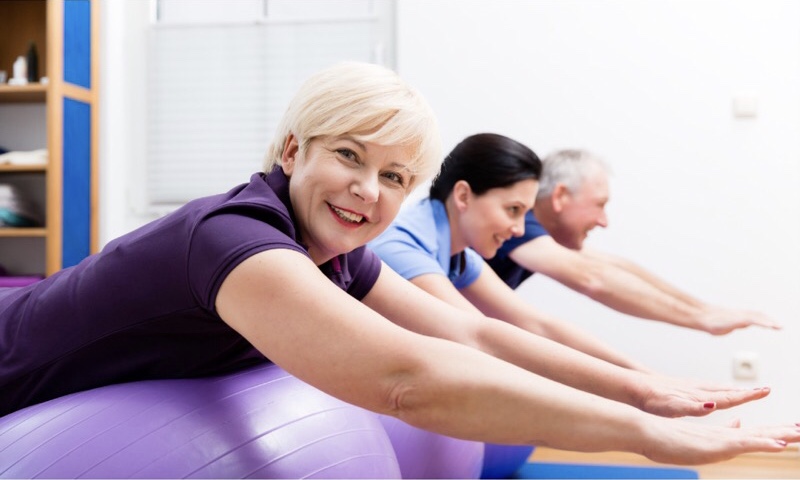Exercising is important at every stage of life – but for individuals over 50, it is essential to engage in regular exercise to maintain good health, strength, and flexibility. This is key to maintaining your independence in your 60’s, 70’s, 80’s and beyond! No matter how active you were in your childhood, teens and twenties, it’s important to continue moving throughout adulthood and ‘older’ adulthood, to counteract the effects of ageing, including sarcopenia, hormonal changes and cognitive changes too.
The best type of exercise often includes a combination of cardiovascular activities, strength training, flexibility exercises, and balance training. Here are some recommendations:
- Aerobic/Cardiovascular Exercise: Engaging in activities that raise your heart rate and increase breathing, such as brisk walking, swimming, cycling, or aerobics, can improve cardiovascular health and endurance.
- Strength Training: Including strength training exercises, such as lifting weights or using resistance bands, helps maintain muscle mass and bone density, which tend to decline with age. Focus on exercises that target major muscle groups, including the legs, arms, back, chest, and core.
- Mobility and Stretching: Incorporate stretching exercises to improve mobility and joint health. Consider activities like Pilates, tai chi, or dedicated stretching routines. These can help increase range of motion and reduce the risk of injuries.
- Balance and Stability Exercises: Enhancing balance and stability is crucial for preventing falls and maintaining independence. There are plenty of exercises we can do to improve both static and dynamic balance.
- Functional Exercises: Incorporate exercises that mimic movements used in daily life. This can include activities like squats, lunges, step-ups, or carrying groceries. Functional exercises improve overall strength and make everyday tasks easier.
- POWER Exercises: Although older adults are often advised to engage in ‘gentle’ movement, if we really want to look at increasing independence, you should try to train big, powerful exercises. This is what really helps us to maintain muscle mass and bone density. It’s also key to balance as we need power to catch ourselves from falling – as well as to do many of the movements that are crucial in everyday life, such as climbing stairs, or pushing ourselves off the floor.
- Mind-Body Activities: Consider activities that promote mental well-being, such as meditation, mindfulness, or gentle forms of exercise like tai chi. These can help reduce stress, improve focus, and enhance overall well-being.
If you have pre-existing conditions, consult with a healthcare professional and if necessary, get medical clearance before starting a new exercise program. Otherwise don’t forget that the best form of movement is one that we enjoy – meaning that we’ll really strive to make it part of our routine and keep going in the long term.

